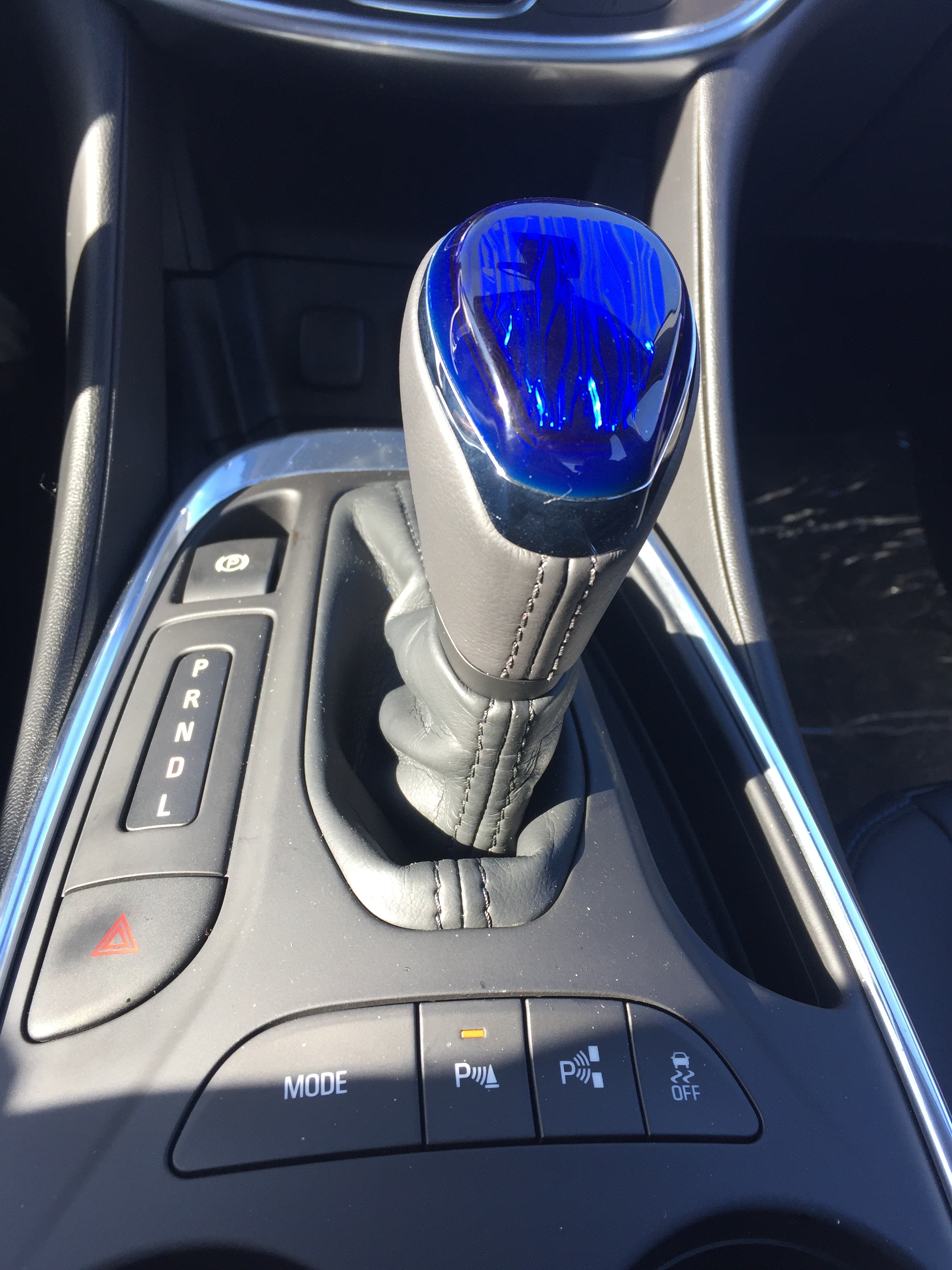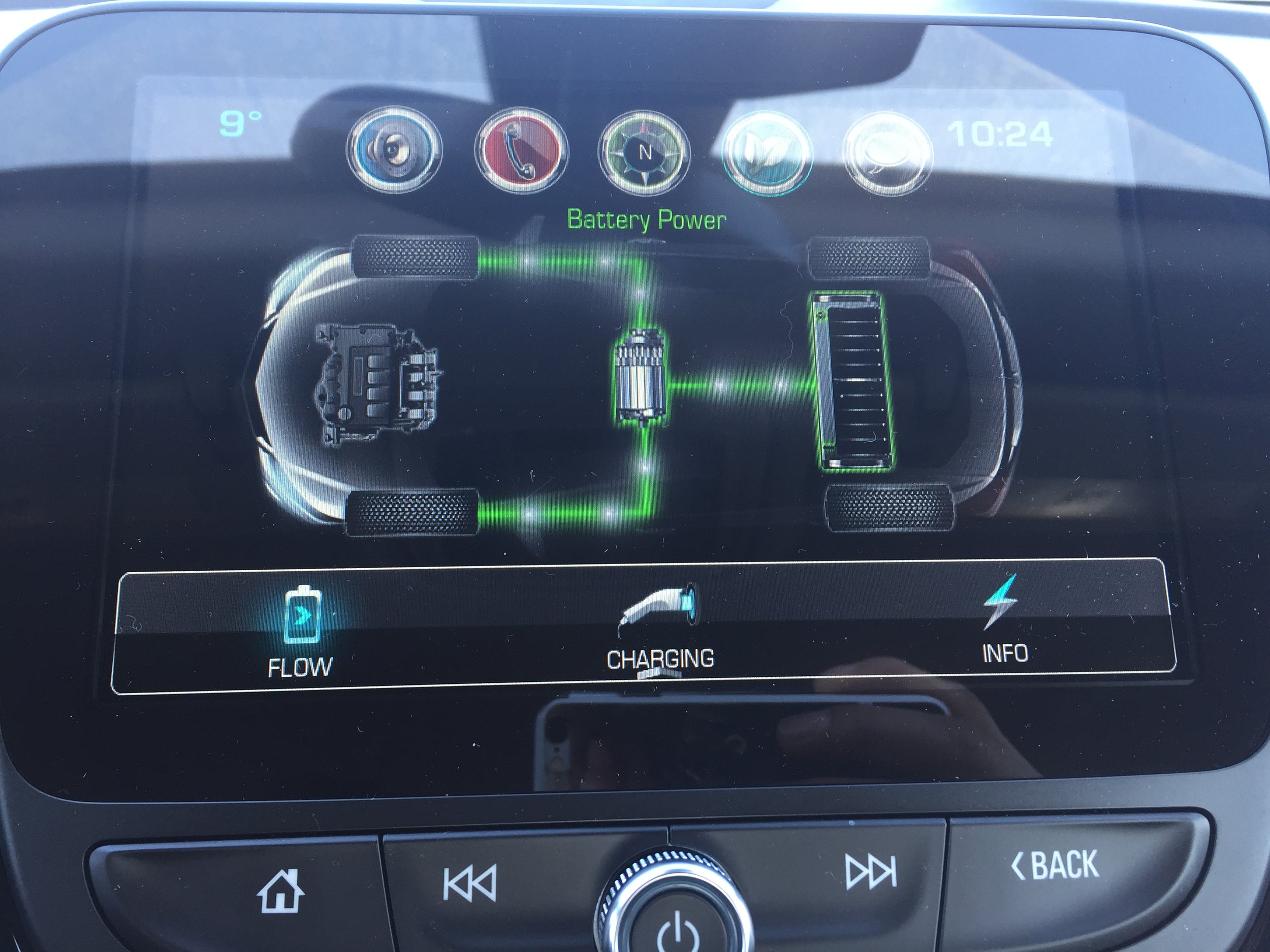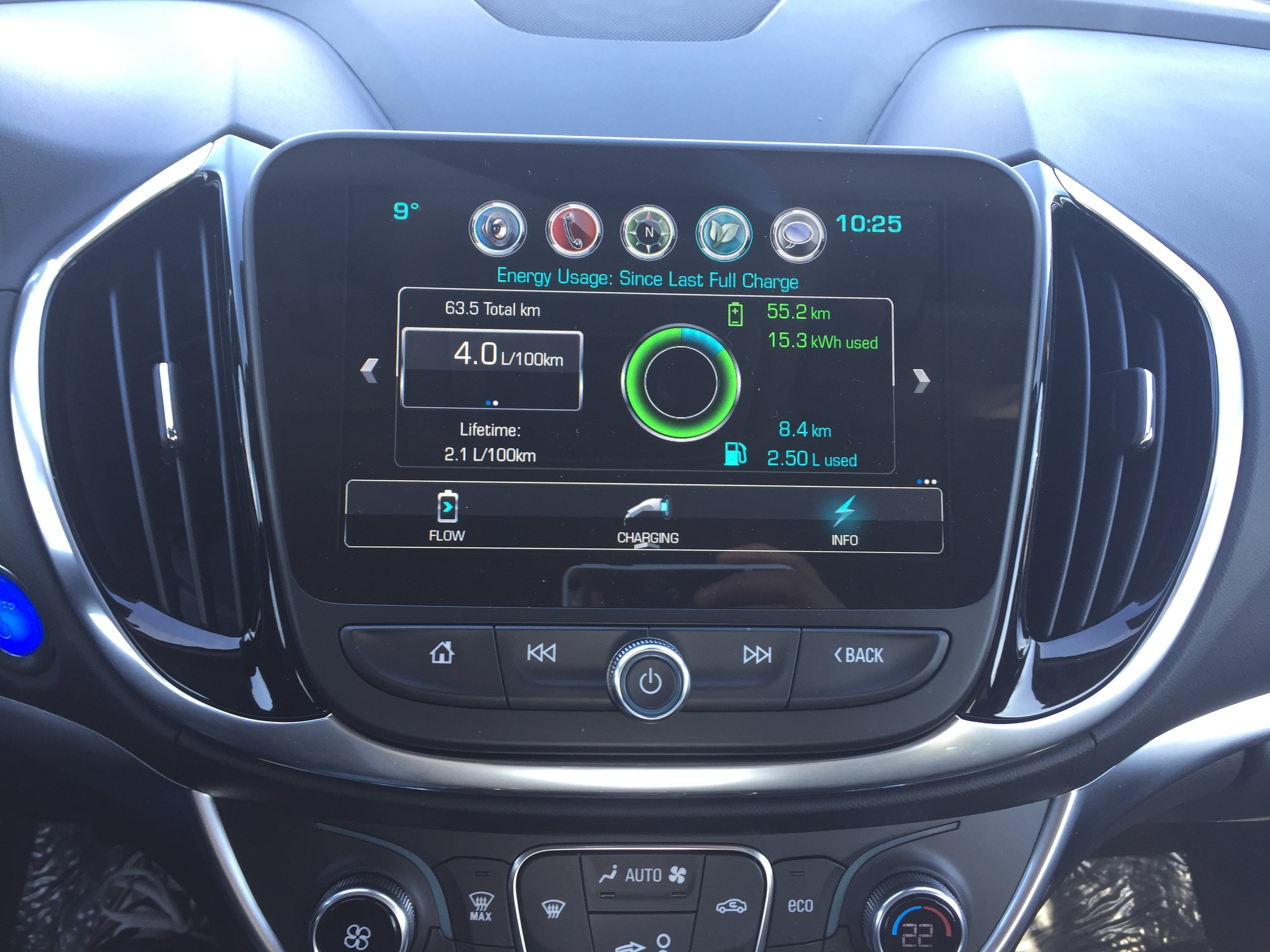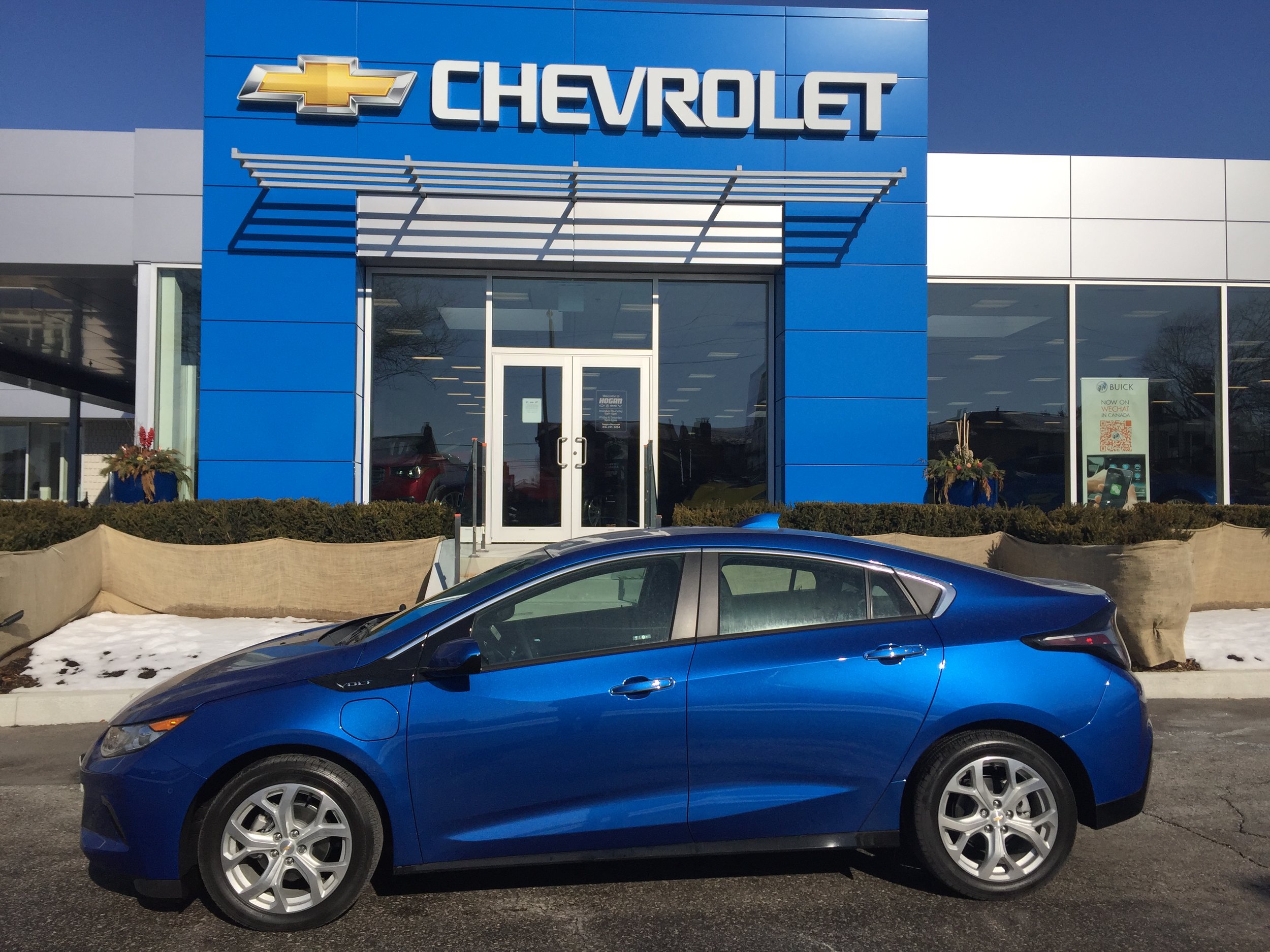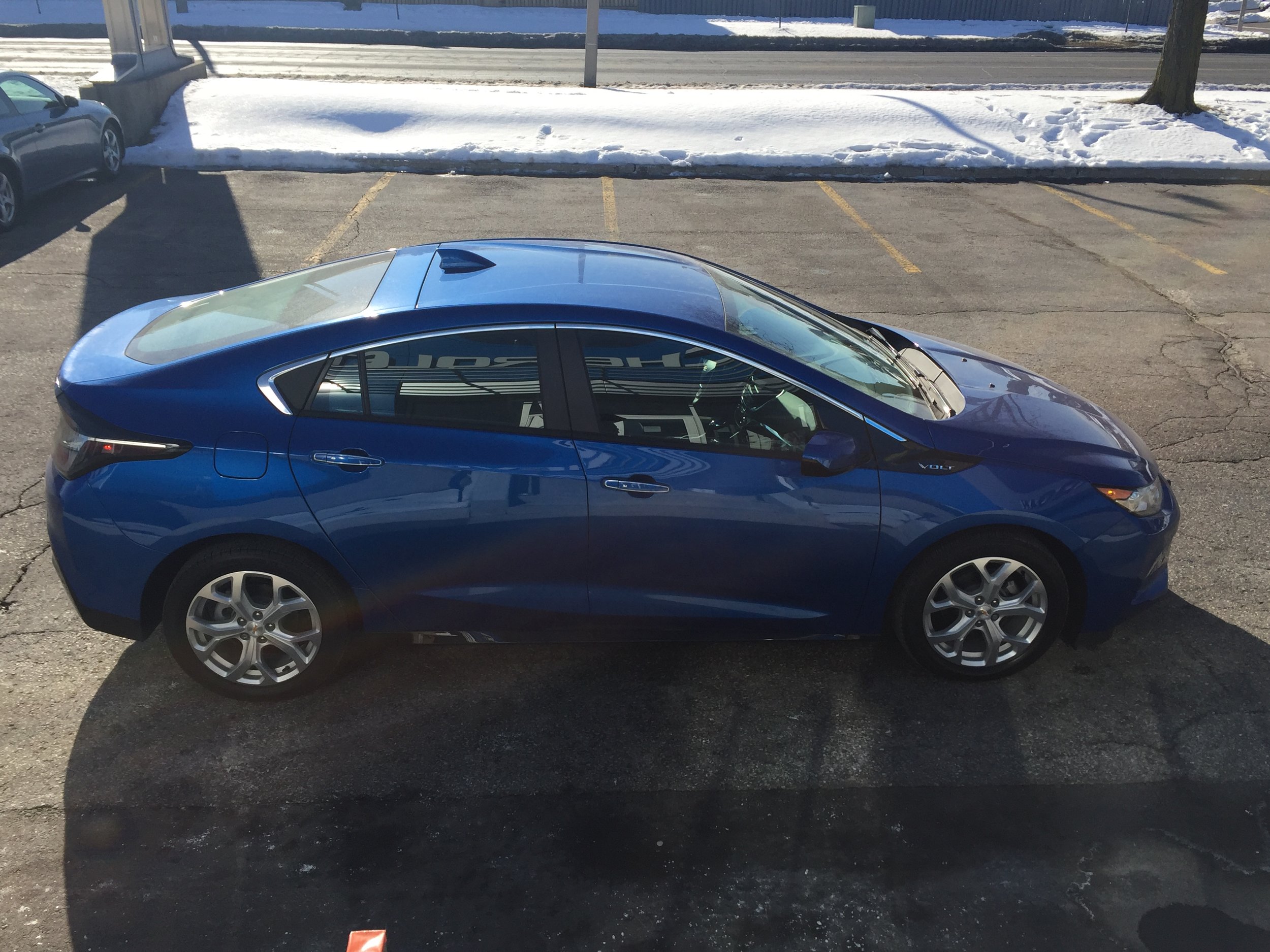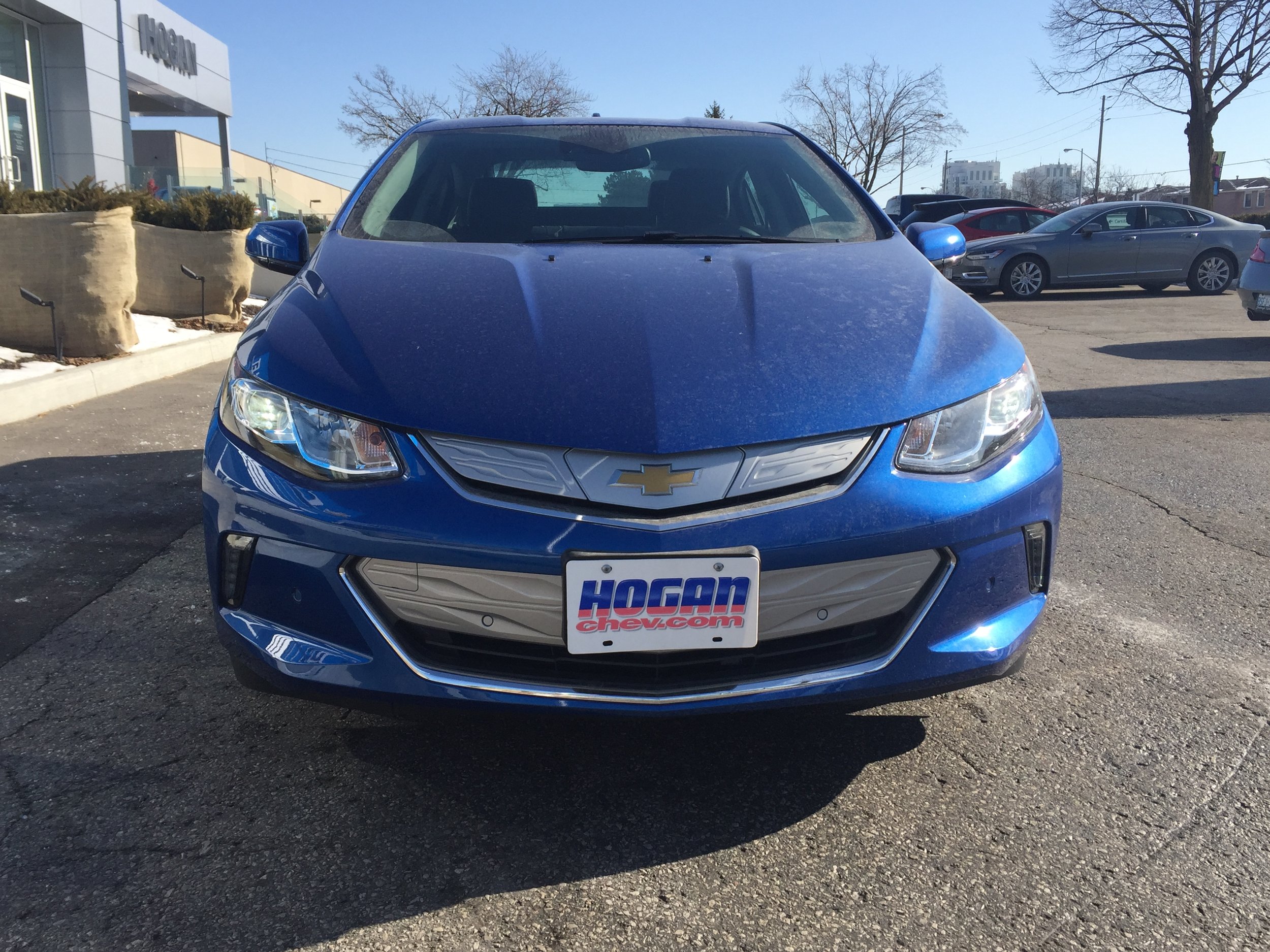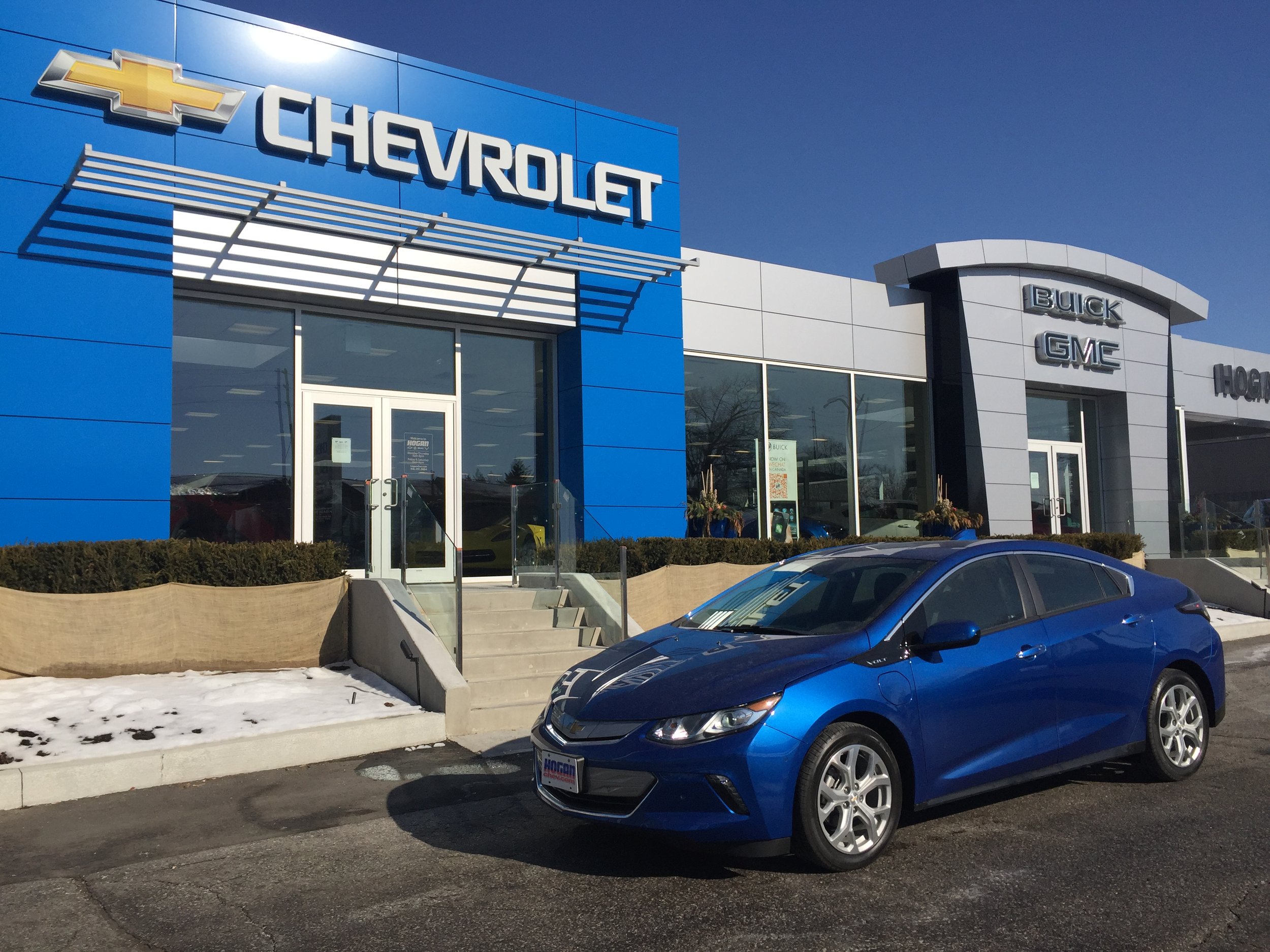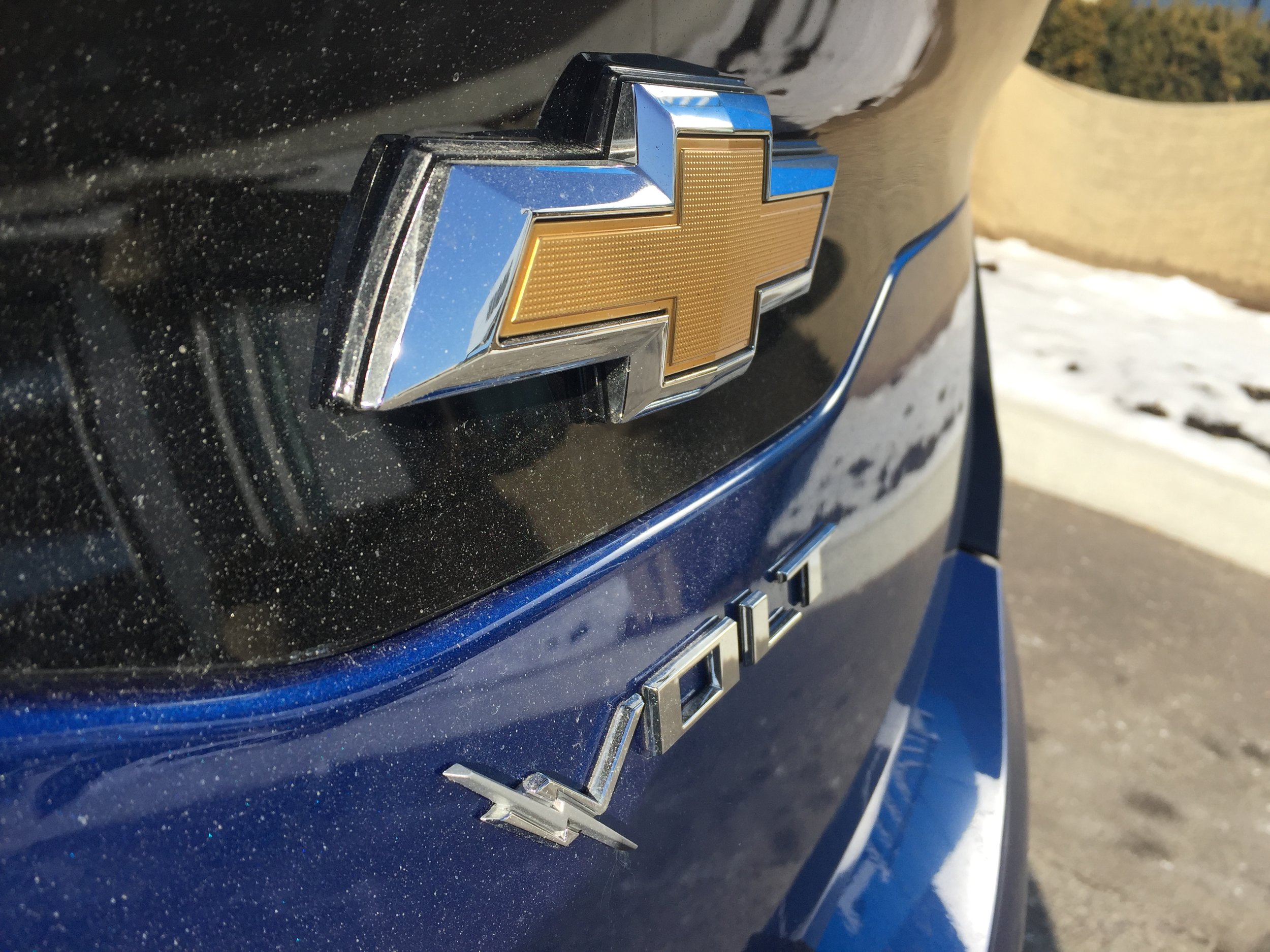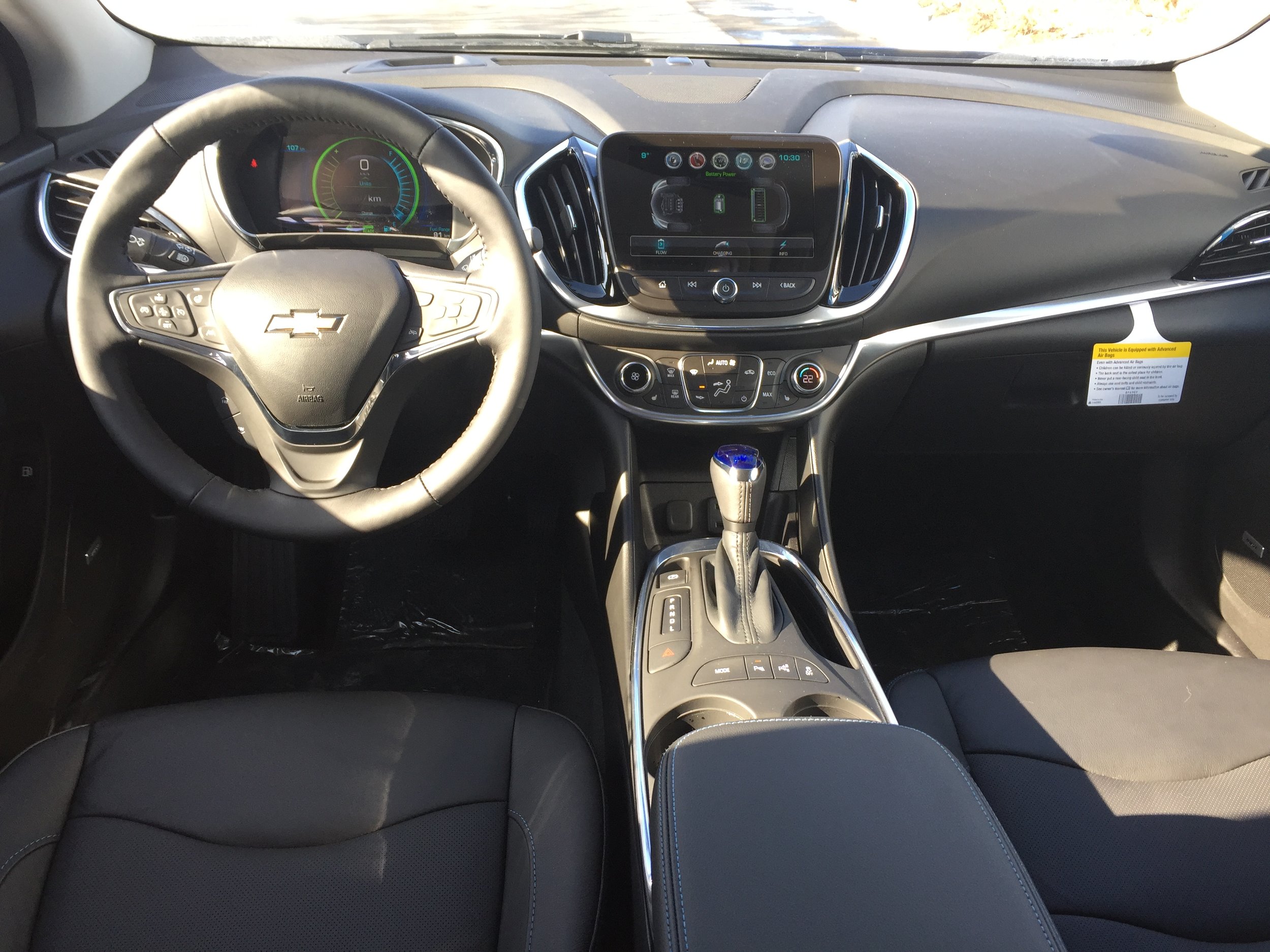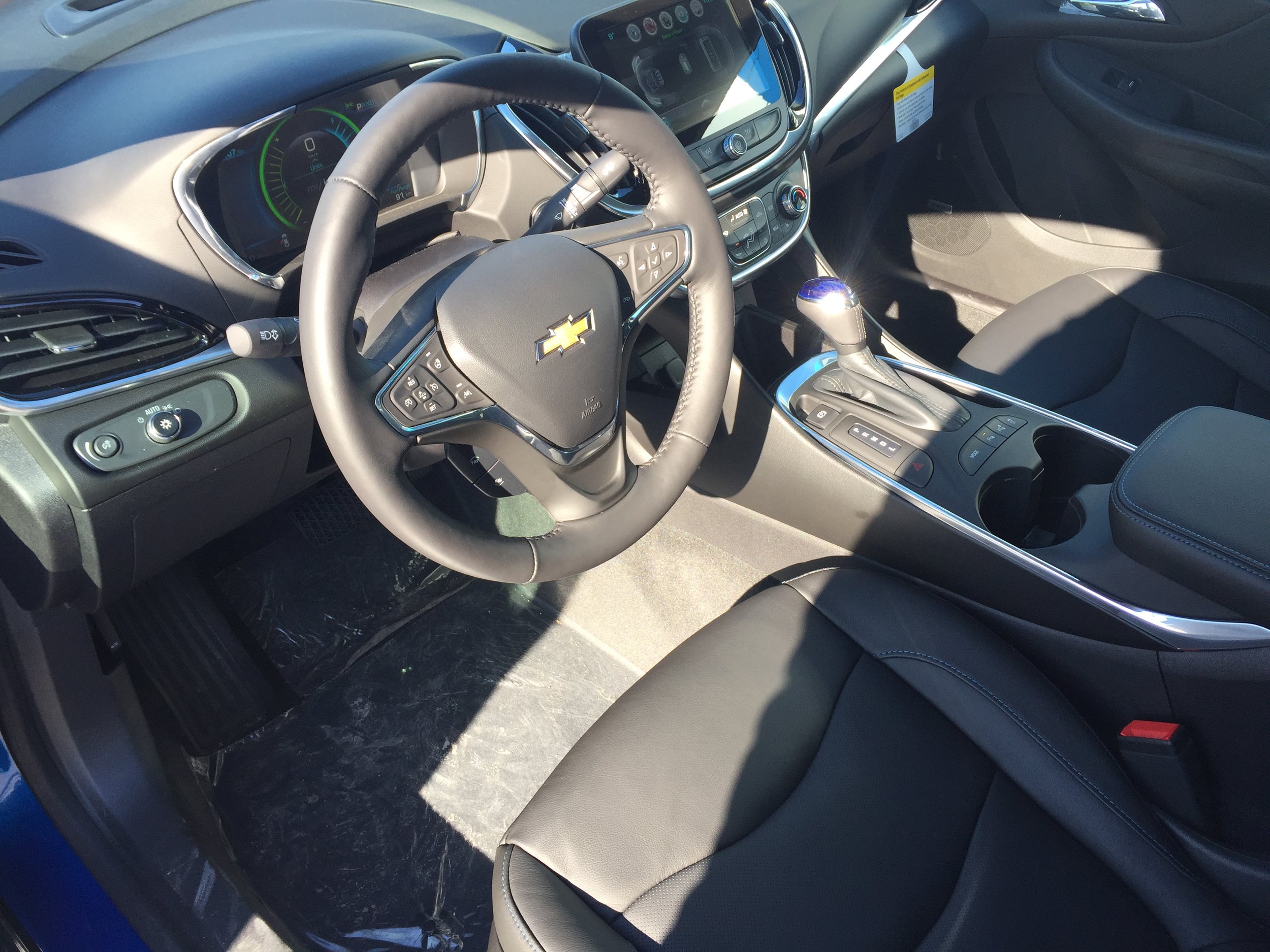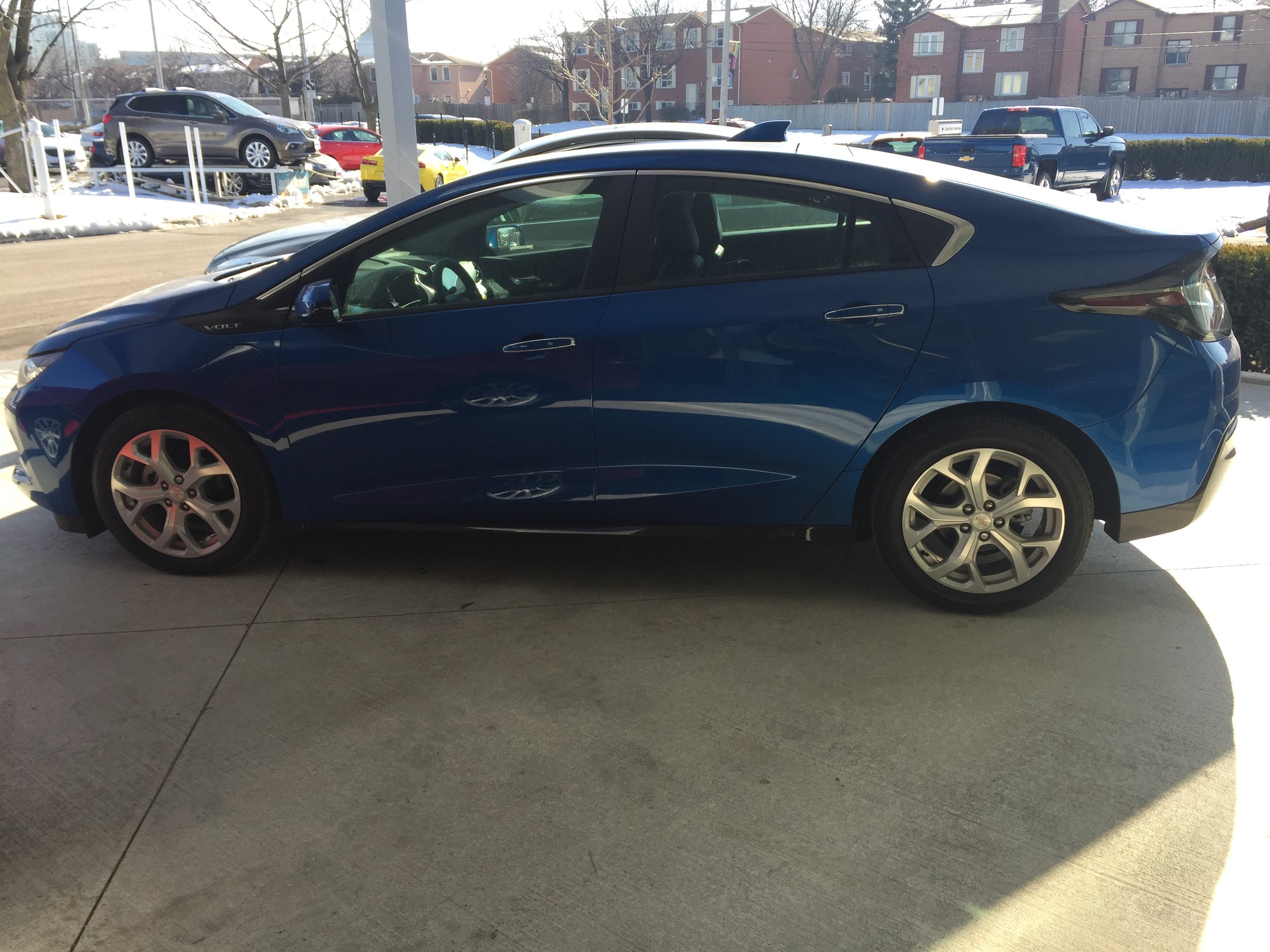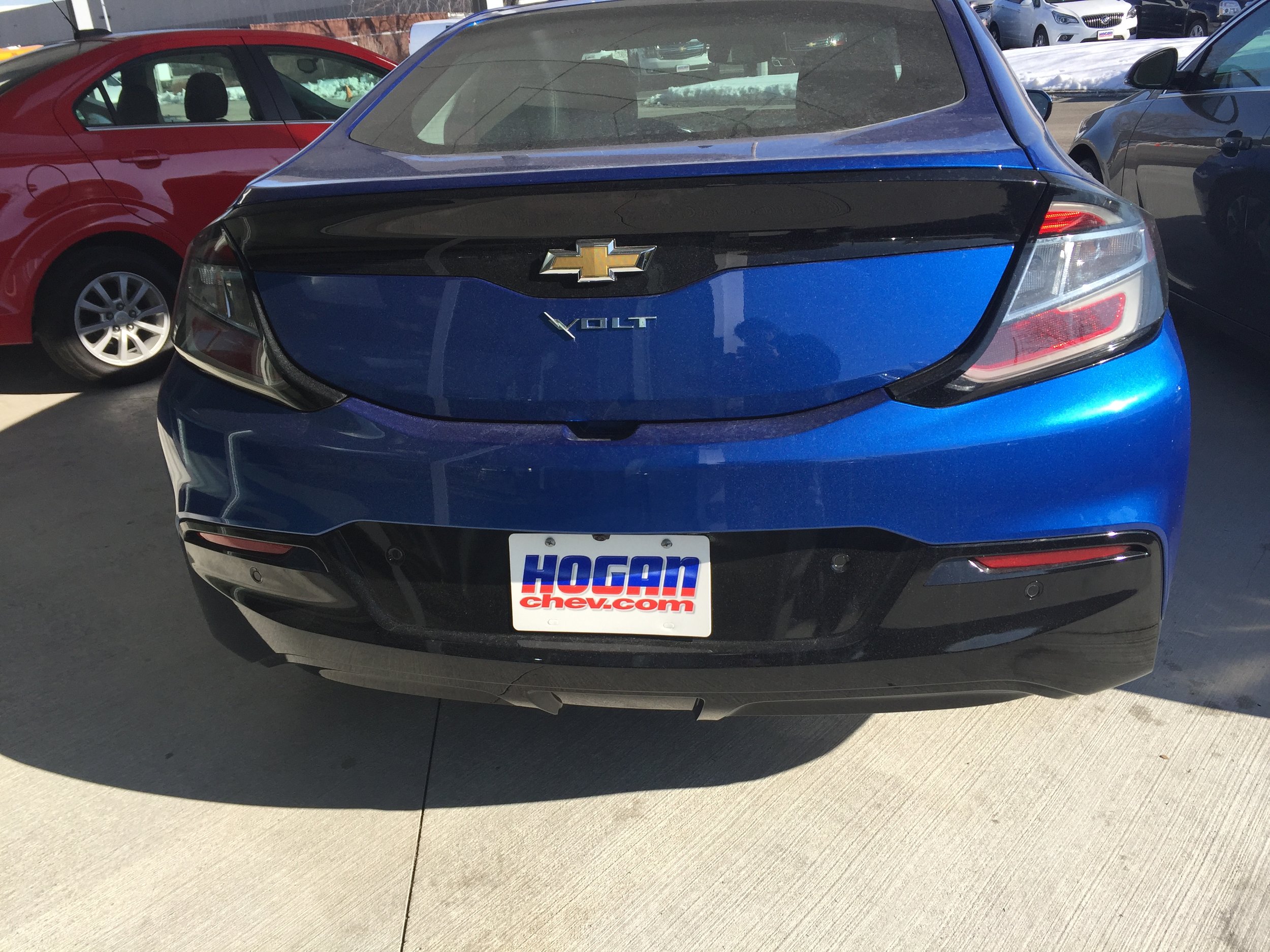Experiencing the 2017 Chevrolet Volt
/[SPONSORED BY HOGAN CHEVROLET]
We were recently invited by the folks at Hogan Chevrolet to take the new 2017 Chevrolet Volt out for a spin to experience the golden bowtie’s compact sedan offering.
Salesperson Paul Yoo gave me a walk-around of the Volt and proudly said “it’s an electric vehicle, not a hybrid. There is a gasoline engine but it only kicks in once the battery is depleted and the gasoline engine helps recharge the battery.”
Wouldn’t that make it a hybrid vehicle? Not quite. Other hybrid vehicles use a mix of battery and gasoline power that are interchangeable while driving. The Volt does them separately, which means that if your daily commute falls below 70-ish km per day, there’s the potential for using only electric power.
The 2017 Chevy Volt, now in its second generation after the initial 2011 launch, is refined throughout, with the most notable feature being the longer range on a single charge.
With Volkswagen’s diesel fiasco, the high cost of gasoline, and all-electric cars experiencing growing pains mileage wise, the new Volt seems to have struck a pleasant balance between comfort, range, looks, and power.
Starting with what nearly everyone wants to know, let’s examine what propels the Volt.
The 18.4 kWh lithium-ion battery pack has been refined and now stores 20% more electrical energy and uses fewer cells, resulting in getting up to 85 km on a single charge before the gasoline engine kicks in.
The 85 km is an impressive figure, but keep this in mind: added weight in the car, idling in traffic, and how heavy your right foot is, along with what features you’re using while driving (A/C, radio, etc.) will give you the good ol’ “results will vary” factor. But overall, that kind of range is a huge step forward for GM over the outgoing model. Once the battery is depleted, the 1.5 litre, four-cylinder gasoline motor kicks in and can move you nearly another 600 km, again, based on driving conditions. So in theory, you can move nearly 700 km on a single charge and full tank of gas via the 2017 Volt. Running off regular 87 octane fuel with an efficient-sized tank that holds 33 litres of gas is a huge selling point for those looking to move into a mixed gas-electric world.
Total combined horsepower comes in at 149 and thanks to the electric component, total torque registers at 294 lb-ft. That high torque figure gives you plenty of “get up and go” so for those of you who still think that hybrids are slow and sluggish, a quick test drive in the Volt will definitely change your mind. Driving feel is quite good, handling and cornering are respectable, and GM’s efforts to make the Volt feel and drive like a full gasoline car receive full marks. I was also pleasantly surprised at how little road noise bled into the cabin when the gasoline portion kicked in.
The official fuel ratings chime in at 2.2 L/100 km (electric only); 5.6 L/100 km (gas only).
Charging the battery via a 110 V outlet will take “about 13 hours” according to GM’s website.
Using a much faster 220 V outlet has you fully charged up in “about 4.5 hours.” My advice is to install a 220 V outlet if you’re going to be toting around town and country in a Volt.
On the inside, an eight-inch colour touch screen MyLink infotainment system is the first thing you’ll notice. It’s very responsive and smartly laid out, which scores full marks with me.
The dashboard also measures in at eight inches and offers several different configurations providing you with a plethora of driving information that’ll help you maximize your fuel efficiency. Seating is very comfortable and spacious and thankfully, there’s only space for two in the rear, eliminating the suffering of the unfortunate soul who usually gets the cramped middle seat.
There are only two trims available; the LT ($38,390 MSRP) and Premier ($42,490 MSRP) with the LT offering standard features such as heated seats and steering wheel, a built in Wi-Fi hotspot, and LED headlamps, among others. Paul said for every 10 Volts he sells, approximately 8 of them are the Premier trim.
Appearance-wise, the Volt sports terrific looks and while it’s not quite a Camaro, there are really good design lines and curves, giving the car a sporty feel. My favourite part of the design is that the Volt, while appearing as a regular sedan, sees the trunk door open as a hatchback would, giving plenty of access for cargo.
GM has done a stellar job with the second generation Volt and seeing as they’re up against the Prius powerhouse, they had to come out swinging. I feel that they’ve landed a few solid punches in the early rounds. Buyer behaviour is an interesting study topic and it’ll be exciting to see how they react to the 2017 Volt.
I feel enough time has passed that consumers will have mostly forgotten about the EV1 debacle and they’ll see that GM is intent on being taken seriously in the electric world. The all-electric Chevrolet Bolt is around the corner and that in itself should be plenty of proof that GM increasing its resources towards alternative fuel vehicles.






